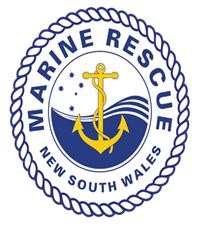Drowning report highlights need for boating safety
by Ken McManus on 10 Oct 2013

MarineRescueNSW.JPG Marine Rescue NSW
http://www.marinerescuensw.com,.au
The 2013 National Drowning Report was a tragic reminder for all boaters especially babyboomer men to take extra caution on the water, Marine Rescue NSW Commissioner Stacey Tannos said today.
Commissioner Tannos said the report highlighted the risk of drowning for recreational boaters and the need to make safety their highest priority.
'We have 3200 volunteers committed to saving lives on the water but boaters need to be responsible and take simple safety precautions to reduce their risk of drowning,' he said.
The Royal Life Saving Society - Australia report shows that from July 1, 2012 to June 30, 2013:
• 291 people drowned in Australia – up 5% on the previous year
• 36% of these - 104 people - were in NSW
• 82% of all drowning deaths were male (238)
• 20% - 58 people - were using a boat or other watercraft immediately before they drowned.
• 39% of drowning victims were people aged 55 years and over (114)
• In this age group, boating/watercraft accidents were responsible for the largest number of drowning deaths – 27 people (24%)
• Boating/watercraft accidents accounted for more than half of drowning deaths in ocean/harbour locations (58%) and were the leading cause on inland waterways (20%)
Commissioner Tannos said while boating was one of the most popular pastimes for male babyboomers, especially after their retirement, the report illustrated the risks involved.
'Those of us in this age group need to remember we’re not 20-years-old anymore and to take our health and level of fitness into account when we’re heading out. It’s crucial to always check the conditions and preferable not to go boating alone,' he said.
Commissioner Tannos said all boaters should wear a lifejacket whenever they were on board.
'Boaters should also Log On with their nearest MRNSW unit to ensure someone responsible knows when they’re leaving, where they’re heading and importantly, when they’re due back.
'If they don’t contact us to say they’re safely back on shore, we can quickly start to search for them.
'In an emergency when someone is in the water because their boat has capsized or they’ve fallen overboard, minutes can mean the difference between life and death.
'If we know where to start searching, that can save valuable time and increase the person’s chances of survival,' he said.
If you want to link to this article then please use this URL: www.sail-world.com/115603